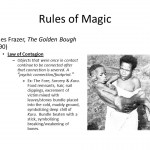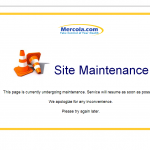conflict of interest
I didn’t think I’d be revisiting this topic again so soon, but damned if Alice Dreger didn’t write something that comes pretty close to demanding that I do so. I tried to resist, but unfortunately could not. Basically, I’m getting really, really tired of Dreger. Why do I say that? It’s because I’m having a harder and harder time not thinking that she has antivaccine proclivities. I don’t want to. I really don’t. But, damn, if she doesn’t keep sounding like a blogger on Age of Autism or The Thinking Moms’ Revolution. The echoes are unmistakeable and appeared again just yesterday.
I first…
You’ve probably seen on-line the grim photos showing a construction nail embedded in a person’s skull or hand. The culprit: nail guns. In particular, those with “contact actuation triggers.” An estimated 37,000 pneumatic nail-gun related injuries are treated in US emergency rooms every year, with slightly more than half being work-related. Nail guns are the leading cause of tool-related injuries in the US construction industry that result in hospitalization. As researchers who study nail gun safety wrote in the March 2015 issue of Professional Safety:
“Before pneumatic nail…
“Shift work refers to work that takes place outside of traditional 9-to-5 daytime hours. If you work nights or rotating shifts, you are a shift worker. Many people who work shifts are at risk for developing shift work disorder (SWD) and may experience excessive sleepiness (ES) on the job.” So says the website designed to market the drug known as Nuvigil, sold by Cephalon, a subsidiary of Teva Pharmaceutical Industries, Ltd. Approved by the US Food and Drug Administration (FDA) in 2007 to treat narcolepsy and obstructive sleep apnea and the excessive sleepiness that may come with working a…
Thanks to a unanimous vote of California’s Occupational Safety and Health Standards Board last Thursday, workers get to hold on to a robust chemical right-to-know rule that puts their health and safety first. The vote also means that California workers will reap the benefits of more meaningful right-to-know rules than those at the federal level.
“It’s a human right to know about the hazards of the work you’re doing,” said Dorothy Wigmore, occupational health specialist at Worksafe, a state-based organization dedicated to eliminating workplace hazards. “If employers don’t know about the…
Some who oppose vaccination do so, at least in part, because of concerns that pharmaceutical companies make profits off of vaccines. Many recommend alternative products, including supplements, in lieu of protective vaccinations.
As such, it's a very...interesting...relationship that the anti-vaccine National Vaccine Information Center apparently has with supplement shill Mercola.com. Both sites are currently down with the following images, including Mercola's logo on both sites.
Certainly it's no secret that the two organizations have worked together previously against vaccines, but this…
I've written about conflicts of interest (COIs) a lot over the years. COIs are important in medicine and science because, as much as physicians and scientists like to think that they are immune to such things, we are as human as anyone else. We are just as prone to unconsciously (or consciously) being influenced by self-interest related to our COIs. Most of the time, for purposes of science, COIs are considered to be mostly financial in nature: employment or payments from a drug company, a financial interest in a treatment being studied, and the like. Andrew Wakefield is a classic example in…
Earlier this month I wrote about the merits of policies that require conflict of interest disclosures. Last week, two items also about conflicts of interest landed in my in-box. They were just too juicy to not take a bite, and write about here.
First came a commentary from the October 2013 issue of the Annals of Occupational Hygiene written by the journal’s chief editor Noah Seixas, PhD, MS. The lead paragraph reads:
"On 6 June 2013, a court in New York handed down a decision that calls into question the validity of research that was sponsored by Georgia-Pacific [GP] and published…
On October 17, the World Health Organization’s International Agency for Research on Cancer (IARC) announced that it has classified air pollution as a human carcinogen. Although the composition of air pollution and exposure levels vary widely from place to place, IARC says its assessment is applicable worldwide and notes that exposures in rapidly industrializing countries with large populations have increased significantly in recent years. According to the IARC review of the latest scientific studies, exposure to air pollution increases the risk for lung cancer and for bladder cancer. IARC…
As I said yesterday on Twitter, a big conflict of interest and transparency problem has arisen on ScienceBlogs. Like several other bloggers here, I'm now on a hiatus, however like like David Dobb's and Blake Stacy's, my hiatus from ScienceBlogs will be permanent. I've been contemplating a move from ScienceBlogs for a while for several reasons, but PepsiGate has sealed the deal for me. Several of my ScienceBlogs colleagues have summed up the situation well, including PZ Myers, GrrlScientist, and Brian over at Laelaps. For a full recap of the issue and other ScienceBloggers'…
Hoo boy. I never thought I'd have to resign a blogging position in protest. But so I find.
I'm dismayed at ScienceBlogs' decision to run material written by PepsiCo as what amounts to editorial content â equivalent, that is, to the dozens of blogs written by scientists, bloggers, and writers who come with a different, more straightforward sort of agenda. This is like having Pfizer run CME; it presents problems I can't overlook. My Sblings should and will do as they see and feel best, and can and will do so without censure or judgment from me. But I cannot help but feel complicit in this if I…
Important Update: The time has come to close things up here. I will no longer be blogging for ScienceBlogs.com. I am not sure where Laelaps will end up - perhaps back on Wordpress, perhaps elsewhere - but you can be sure that I will keep on writing about saber-toothed cats, whales that walked, early humans, and other cool bits of paleontology. With any luck, I will be able to confirm my plans in a few days. Keep your eyes on my author website or follow me on Twitter to find out where I'll be headed next. This is not farewell - just a brief break in transmission.
By now you have probably heard…
Today ScienceBlogs launched a new sponsored blog, Food Frontiers. The sponsor is PepsiCo. Here's the description of what the blog is going to be about from its inaugural post by Sb overlord Evan Lerner:
On behalf of the team here at ScienceBlogs, I'd like to welcome you to Food Frontiers, a new project presented by PepsiCo.
As part of this partnership, we'll hear from a wide range of experts on how the company is developing products rooted in rigorous, science-based nutrition standards to offer consumers more wholesome and enjoyable foods and beverages. The focus will be on innovations in…
I'll confess that I am not one who spends much time reading the reviews of books posted on the websites of online booksellers. By the time I'm within a click of those reviews, I pretty much know what I want. However, a lot of people find them helpful, and the ability to post your own review of a book (or a film, or a product, or a business) online seems to give consumers more of a voice rather than leaving it to "professional" reviewers or tastemakers.
Who, after all, knows whether those professional reviewers' first loyalties are to the public?
But, unsurprisingly, it turns out that…
Let's say you're a book review editor for a large circulation science periodical. You receive books from publishers and you look for scientists with the relevant expertise to write reviews that really engage the content of the books they are reviewing.
The thing with having the relevant expertise, though, is that it may put you right in the middle of a controversy that the book you've been asked to review is probing or advancing.
In other words, it may be tricky to find a reviewer who is conversant in the scientific issues the book raises and simultaneously reasonably objective about those…
Neuroskeptic offers an elegant unpeeling of a study seeming specifically designed to find a marketing-friendly distinction for a drug -- Abilify -- otherwise undistinguished.
Suppose you were a drug company, and you've invented a new drug. It's OK, but it's no better than the competition. How do you convince people to buy it?
You need a selling point - something that sets your product apart. Fortunately, with drugs, you have plenty of options. You could look into the pharmacology - the chemistry of how your drug works in the body - and find something unique there. Then, all you need to do is…
by revere, cross-posted from Effect Measure
Tufts University is the latest institution to step in the Conflict of Interest mess and come out with shoes that smell. The University had organized a conference on conflict of interest in medicine and research, with Iowa's Republican Senator Charles Grassley as the keynoter. Grassley has been an indefatigable crusader against instances of fraud and abuse against the federal government, and is a principal author and defender of the Federal False Claims Act, which allows whistleblowers to share in the recovery of fraudulently obtained monies (for an…
An ongoing topic here -- raised in depth here, and most recently here -- is how psychiatry is going to right itself from being knocked off-course and off-kilter by its overcozyness with pharma and a corresponding picture of mental disorder.
Psychiatrist Danny Carlat -- one of many dismayed by psychiatry's directtion over the last few years -- sees signs in a recent commentary in the American Journal of Psychiatry, signed by 26 highly prominent psychiatrists, that the discipline is starting to get it.
The key point of the commentary is stated in its title, "Conflict of Interest: An Issue…
I'm having difficulty even reading, much less posting about, the river of stories about pharma and device industries, FDA regs, conflicts of interest, and so on. But I'll take a stab here at spotlighting the main events and making some sense of where this is headed. For I don't think it's just coincidence that brings in a few days an archetypal pharma scandal, an unexpected and emphatic Supreme court reversal, an underwear check administered to the entire faculty of the Harvard Medical School, and the decision to "make an example" of surgeons who took kickbacks for using medical devices.
The…
Last night, I lambasted Countdown host Keith Olbermann for having been played by the antivaccine movement and having unjustly slimed British journalist Brian Deer. Clearly, Olbermann was so blinded by his hatred of Rupert Murdoch that all chief apologist for the antivaccine movement, former freelance journalist David Kirby, had to do was mention that The Times of London, the newspaper that published Brian Deer's excellent investigative report nailing anti-MMR guru Andrew Wakefield to the wall for falsifying data, is owned by Rupert Murdoch, and it was like waving the proverbial red cape in…
I'm not as big a fan of Keith Olbermann as I used to be. Indeed, sometimes he strikes me as the liberal version of Rush Limbaugh, not to mention a blowhard. However, occasionally, he still has it, and when he's on, no one skewers the dishonest better than he does. For instance, after a media flack and the usual inclusion of Bill O'Reilly as runners up, meet Andrew Wakefield, the Worst Person in the World for February 10, 2009:
.msnbcLinks {font-size:11px; font-family:Arial, Helvetica, sans-serif; color: #999; margin-top: 5px; background: transparent; text-align: center; width: 425px;} .…

